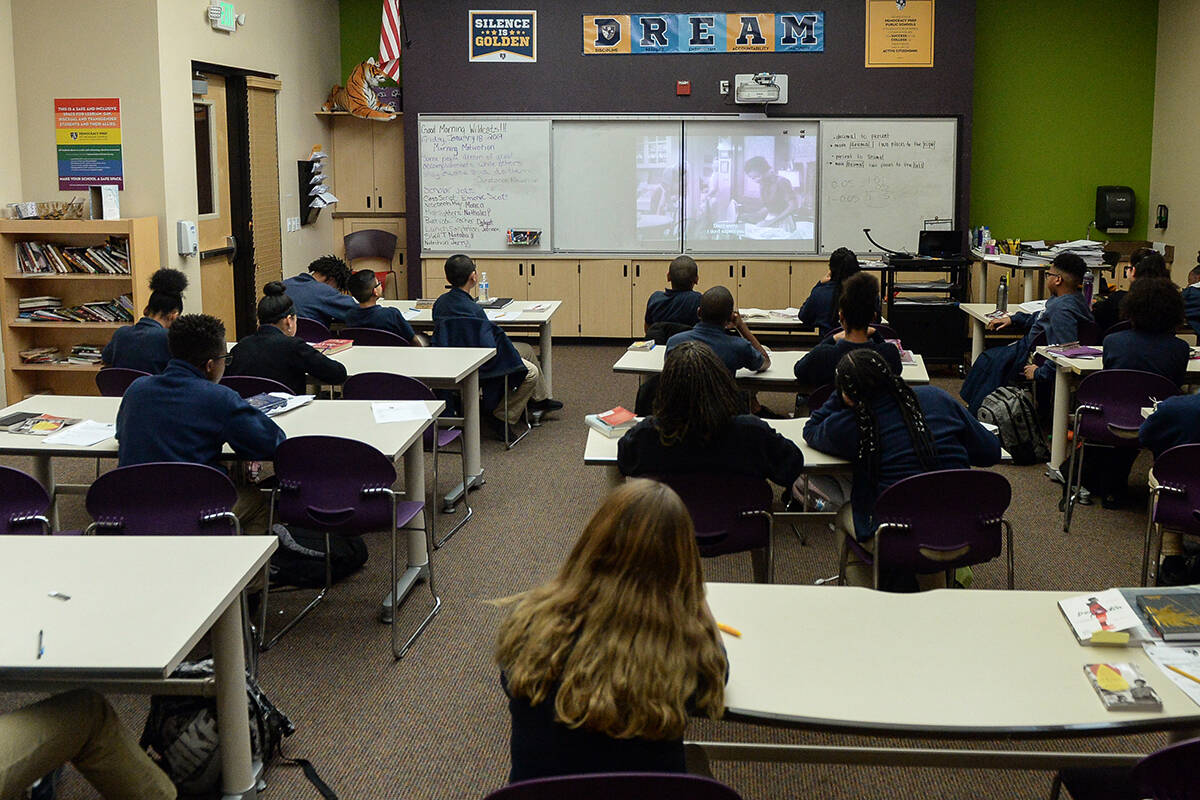EDITORIAL: How Mississippi improved Black reading scores
To improve literacy among African American students, Nevada needs to look to Mississippi. Yes, you read that right.
The Nation’s Report Card provides an apples-to-apples way to compare education performance between states. Its formal name is the National Assessment of Educational Progress. Nationally, achievement among Black students is depressing. Students scoring 238 or higher on the fourth-grade reading test are considered proficient. Those scoring 208 and above are deemed to be reading at a basic level.
In 2022, Black fourth graders collectively scored 199. That’s just one point higher than nearly two decades ago. The pandemic did cause a drop-off. In 2019, Black children scored a 204.
Nevada’s fourth grade Black reading scores followed a similar pattern, just from a lower baseline. In 2003, Nevada’s Black students scored a 193. This year, they scored a 191. In 2019, the score was 200.
But these low scores for Black students aren’t inevitable. Over the past two decades, three states moved from near the bottom into the top five for African American fourth-grade reading. They were Florida, Arizona and Mississippi. The can provide a road map for Nevada.
In 1998, Florida’s Black fourth graders scored 186. Jeb Bush became governor in 1999 and revamped education. He pushed school choice and a focus on early literacy, including a Read by Three program. In 2022, Florida’s score for Black fourth graders was 207. From 2003 to 2022, scores for Arizona’s Black fourth graders went from 196 to 205. Arizona has also enacted aggressive school reforms, including universal school choice.
But the most surprising entrant in the top five is Mississippi. Its black fourth graders went from scoring 192 in 2003 to 204 this year. That’s tied for fifth in the nation.
These results didn’t happen accidentally. In 2013, Mississippi passed the Literacy-Based Promotion Act, which was its version of requiring third graders to read at grade-level to move on in school. It also invested in literacy coaches. That same year, it passed funding to change how teachers taught reading. Its new approach focuses on helping students decode words — otherwise known as phonics.
It worked.
Note that these programs didn’t require large amounts of money, but a hefty dose of political courage. Former Nevada. Gov. Brian Sandoval signed a Read by Three bill in 2015, but retention didn’t start until he left office. Gov. Steve Sisolak then signed a bill gutting it.
If Nevada’s next governor wants to succeed in improving education, he should push the Legislature to emulate reforms that worked in Florida, Arizona and, yes, Mississippi.






















